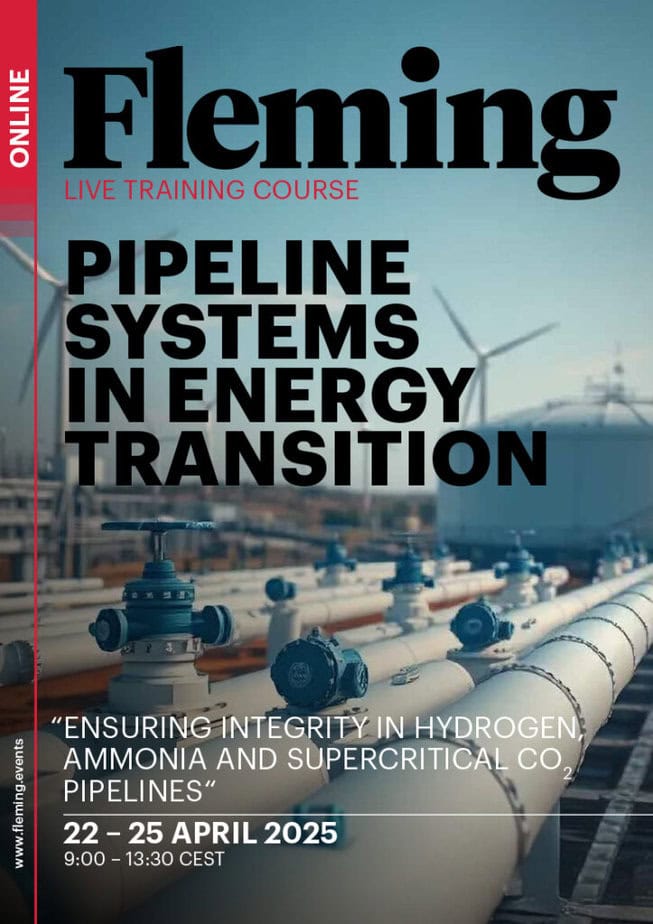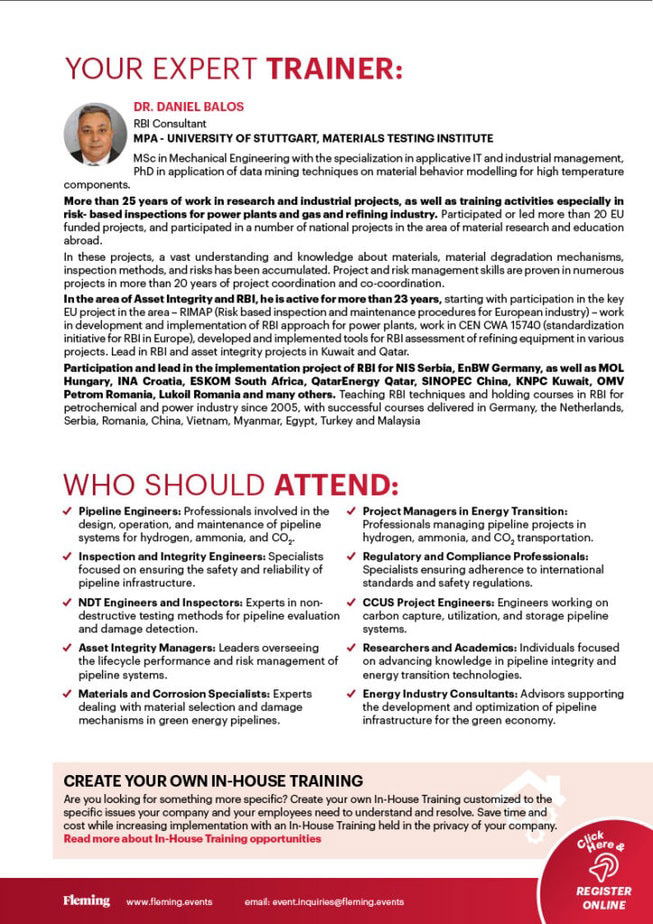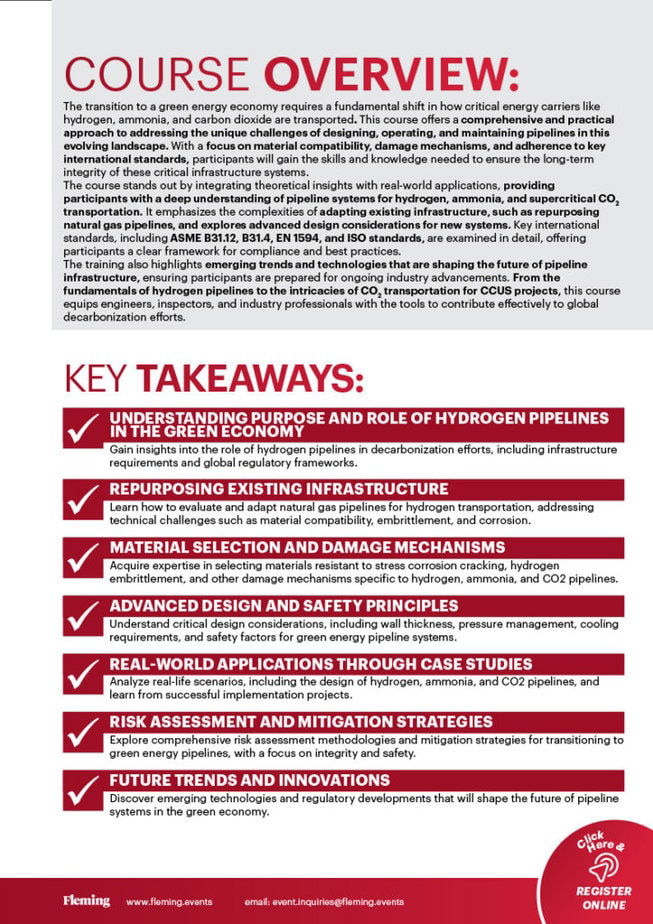Course description
The transition to a green energy economy requires a fundamental shift in how critical energy carriers like hydrogen, ammonia, and carbon dioxide are transported. This course offers a comprehensive and practical approach to addressing the unique challenges of designing, operating, and maintaining pipelines in this evolving landscape. With a focus on material compatibility, damage mechanisms, and adherence to key international standards, participants will gain the skills and knowledge needed to ensure the long-term integrity of these critical infrastructure systems.
The course stands out by integrating theoretical insights with real-world applications, providing participants with a deep understanding of pipeline systems for hydrogen, ammonia, and supercritical CO2 transportation. It emphasizes the complexities of adapting existing infrastructure, such as repurposing natural gas pipelines, and explores advanced design considerations for new systems. Key international standards, including ASME B31.12, B31.4, EN 1594, and ISO standards, are examined in detail, offering participants a clear framework for compliance and best practices.
The training also highlights emerging trends and technologies that are shaping the future of pipeline infrastructure, ensuring participants are prepared for ongoing industry advancements. From the fundamentals of hydrogen pipelines to the intricacies of CO2 transportation for CCUS projects, this course equips engineers, inspectors, and industry professionals with the tools to contribute effectively to global decarbonization efforts.





